This discussion and review contains spoilers for Andor episode 12, the season finale, “Rix Road.”
There’s a compelling symmetry to the first season of Andor.
The season began with an arc that was largely focused on Ferrix, and it closes with an arc that is similarly anchored on Ferrix. It began with a young boy named Kassa (Antonio Viña) being spirited away from the site of an Imperial atrocity by his adoptive parents Clem (Gary Beadle) and Maarva Andor (Fiona Shaw), and it ends with an adult Cassian (Diego Luna) sending Brasso (Joplin Sibtain), Bix (Adria Arjona), and Wilmon (Muhannad Bhaier) away from a similar atrocity on Ferrix.
Still, things have changed. The season began with the destruction of two realities for Cassian Andor: his idealized childhood on Kenari and then the life that he had built on Ferrix. By the end of those three opening episodes, Cassian was a refugee twice over. He had no home. He had no family. To a certain extent, given how the finale is built around Maarva’s funeral, that happens again at the end of the season. However, this time Cassian isn’t running away from things. He is running towards them.
At the end of “Rix Road,” Cassian is in a similar position to the one in which he found himself at the end of “Reckoning.” He is in the Fondor Haulcraft owned by revolutionary Luthen Rael (Stellan Skarsgård). They are fleeing a disastrous military intervention on Ferrix. However, while their earlier encounter was a marriage of convenience, this time Cassian has gone to Luthen by choice. In the season’s final line, he makes a simple appeal, “Kill me. Or take me in.” He is looking for a home.
Andor is an incredible accomplishment. It seems safe and uncontroversial to describe it as the best live-action Star Wars project in almost five years. There is a more contentious argument to be made that Andor is the best Star Wars project since The Empire Strikes Back. However, it might be safer to simply suggest that Andor is the most consistent Star Wars project ever produced. There are no eight consecutive hours of Star Wars as satisfying as this first season.
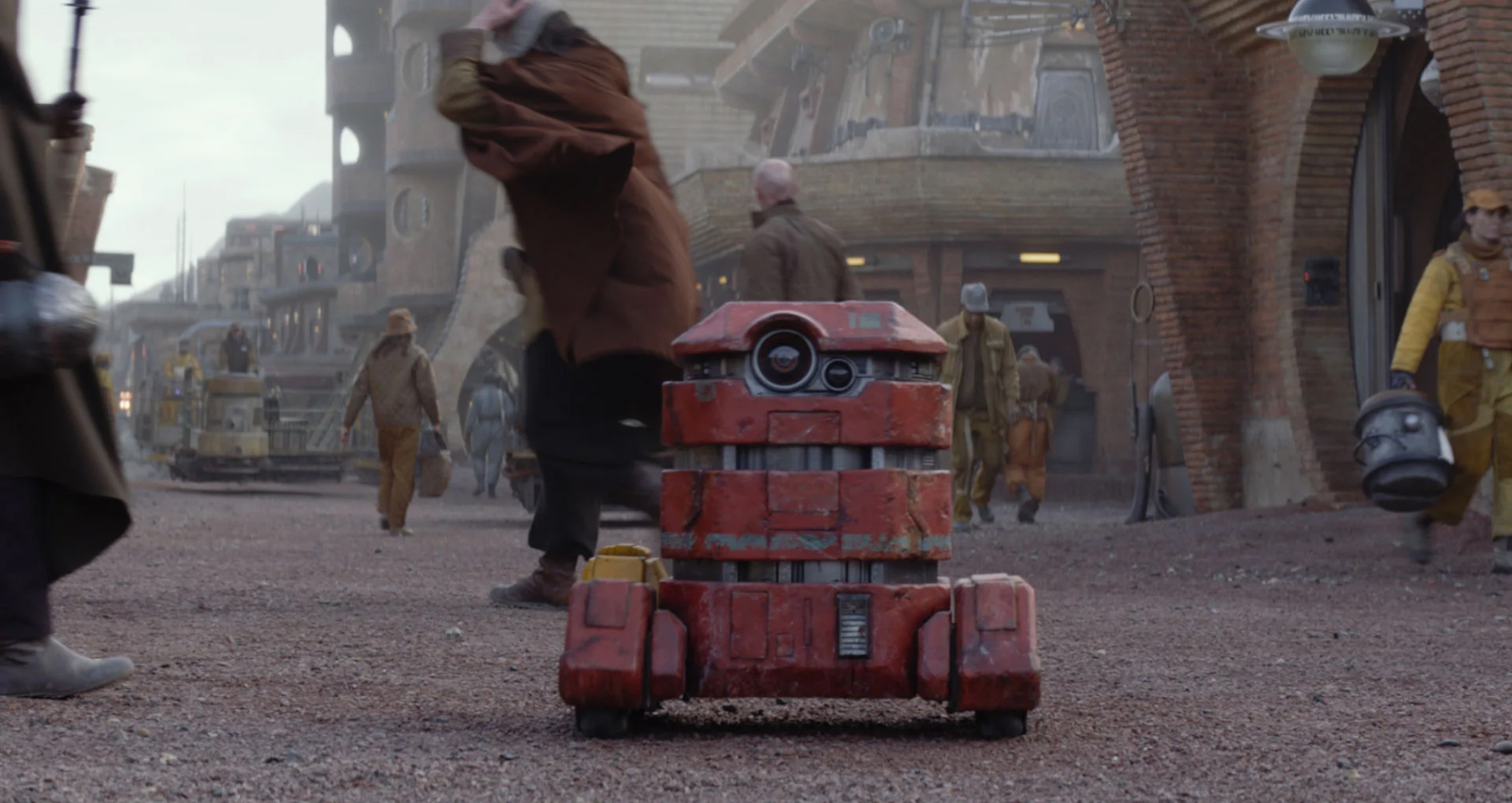
Part of this is down to the way that it enriches what came before. Andor has added a lot of texture and shading to the Star Wars universe. This is particularly evident in “Rix Road,” which firmly leans into the show’s status as a prequel to both Rogue One and the original Star Wars. The original Star Wars is a monumental cultural event, an era-defining blockbuster that imprinted on an entire generation. Part of the beauty of Andor lies in how the show finds a way to enrich that.
“Rix Road” finds Andor at a crossroads between the past and the future. Everything that happens within the episode is both a culmination of the story to this point and potent foreshadowing of what is yet to come. It feels fitting that the season’s postcredits scene revealed what many fans had already guessed about the materials being constructed back in “Narkina 5”: that Cassian had been building parts of the Death Star, the weapon that would ultimately kill him in Rogue One.
This ties into the show’s nuanced understanding of the relationship between tyranny and rebellion. Luthen has argued for what showrunner Tony Gilroy calls “accelerationism.” These revolutionaries will initially provoke and embolden their fascist opponents, but the overreaction of these oppressors will ultimately be their undoing. Cassian had to build the Death Star so the Death Star could be destroyed and begin the Empire’s collapse.
The Battle of Yavin looms on the horizon in “Rix Road.” Gilroy leans on the mythic weight of the original Star Wars. “Rix Road” is built on the assumption that the audience knows what is coming. The audience understands that Karis Nemik (Alex Lawther) is correct that “one single thing will break the siege” and that Maarva was right about Cassian when she remarked that he was “just the first spark of the fire.” Andor is the story of everything leading up to that torpedo in that exhaust port.
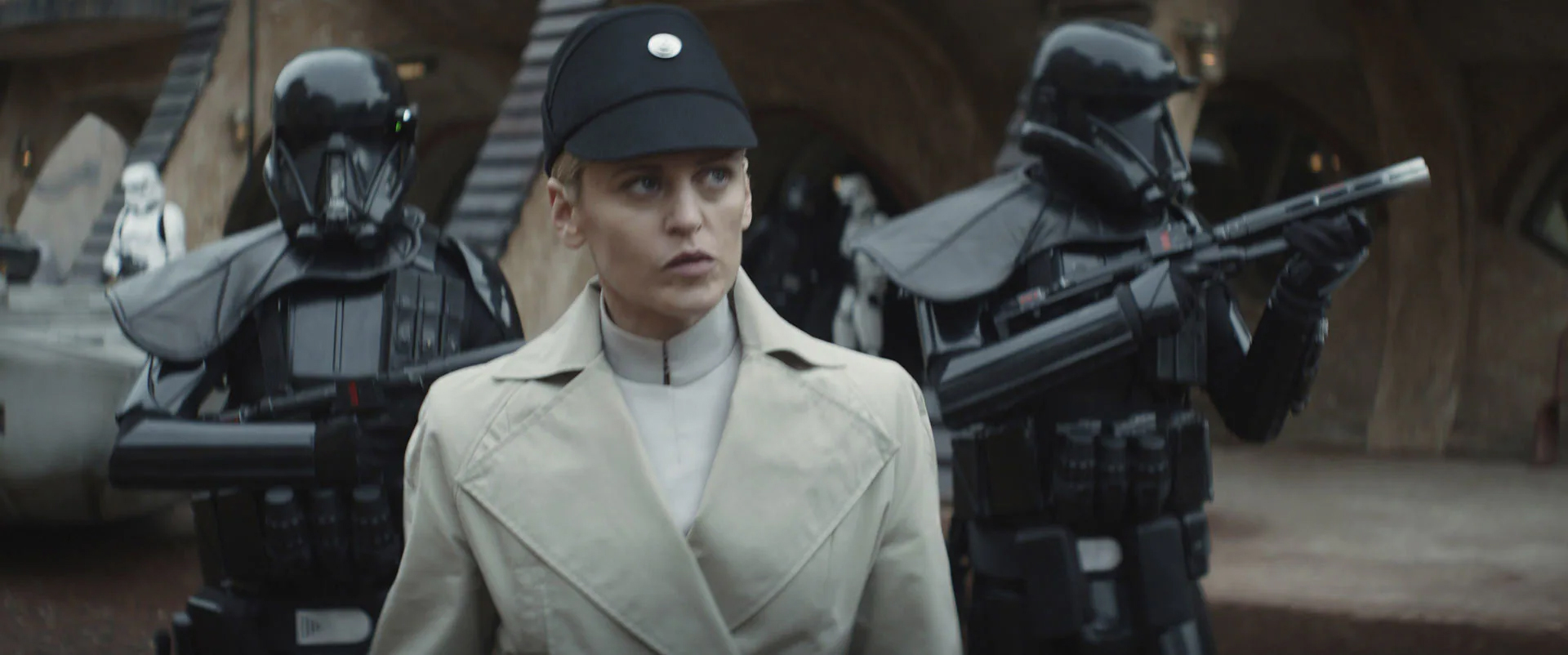
After its opening three episodes, the scope of Andor expanded dramatically. The show’s ensemble grew. Episodes began cutting across a variety of storylines and locations, scattered across the galaxy. Individual threads advanced at their own pace on planets like Coruscant, Ferrix, Aldhani, Narkina 5, and Segra Milo. It was thrilling, but it was also deliberately fractured. Taken individually, each thread explored a different expression of fascism and tyranny, like three blind men describing an elephant.
“Rix Road” works so well as a season finale because it unifies most of those threads, revealing that they are all part of a single tapestry telling a single story. Allowing for two short scenes with Mon Mothma (Genevieve O’Reilly) on Coruscant at either end of the episode, and a brief interlude with Lieutenant Supervisor Blevin (Ben Bailey Smith) at the ISB, “Rix Road” brings the entire cast of Andor back to Ferrix.
There is a weight to seeing all these characters together, sharing the same physical space. Many of them have been insulated and separated from one another over the course of the season, even as the choices that they have made have rippled through the show. The script draws attention to this, with both Luthen Rael and Syril Karn (Kyle Soller) shocked to find Supervisor Dedra Meero (Denise Gough) on Ferrix. “You know her?” Vel Sartha (Faye Marsay) asks Luthen. He replies, “Not yet.”
There is a nice visual metaphor during the standoff on Rix Road. Wilmon tosses an improvised explosive device. It lands near a stockpile of grenades, and the explosion cascades. It’s a literalization of Nemik’s monologue about “all these skirmishes and battles, these moments of defiance” that ripple against the Empire, threatening to become “one too many.” In “Rix Road,” various different agendas intersect, and the results are explosive.
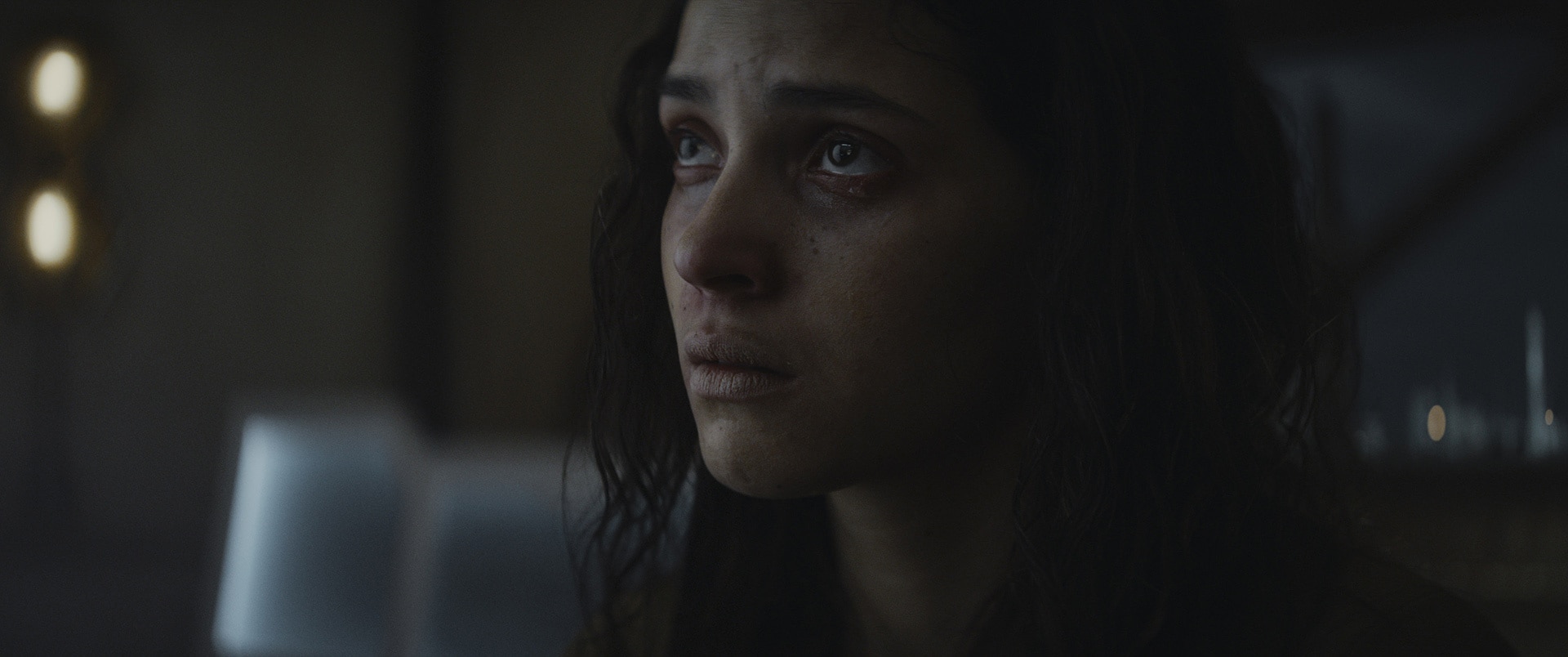
This sense of connection is a large part of what makes Andor so compelling. In “Daughter of Ferrix,” it was revealed that the planet’s dead are cremated and their ashes mixed with concrete. “You become a block of Ferrix brick,” Corv (Noof Ousellam) explains to Meero of the custom. “And then what?” Meero asks. Corv simply states, “They find you a wall.” It is a none-too-subtle metaphor for how Andor approaches its characters; they are all part of something larger than themselves.
In death, people of Ferrix become part of the structure and fabric of the community. “Stone and sky,” chant the mourners at Maarva’s funeral. It all ties back to that recurring preoccupation that Andor has with ascent and elevation, the imperative to “climb” in “The Eye” and “One Way Out.” Andor acknowledges the reality of revolution; “Rix Road” finds Cassian hiding underground in a sewer, staging a literal uprising. However, it also understands transcendence.
In her pre-recorded address to the assembled crowd, Maarva talks about attending funerals as a child and being inspired by the words of the deceased. She speaks in terms of elevation. “I always wanted to be lifted,” she confesses. “I was always eager, always waiting to be inspired.” In what seems like an almost passive-aggressive troll of The Rise of Skywalker, the dead speak on Andor. They literally speak, through both Nemik’s manifesto and Maarva’s projection.
There is a clever piece of metatext to all of this. The audience doesn’t need to listen to Nemik or Maarva to hear the dead speak. Anybody watching Andor must already know the fate of the protagonist. Cassian dies at the climax of Rogue One. The show repeatedly draws attention to that inescapable reality, with the closing scene of “Daughter of Ferrix” set on the coastline of Niamos at magic hour in a way that inevitably evokes Cassian’s final moments on the shores of Scarif.
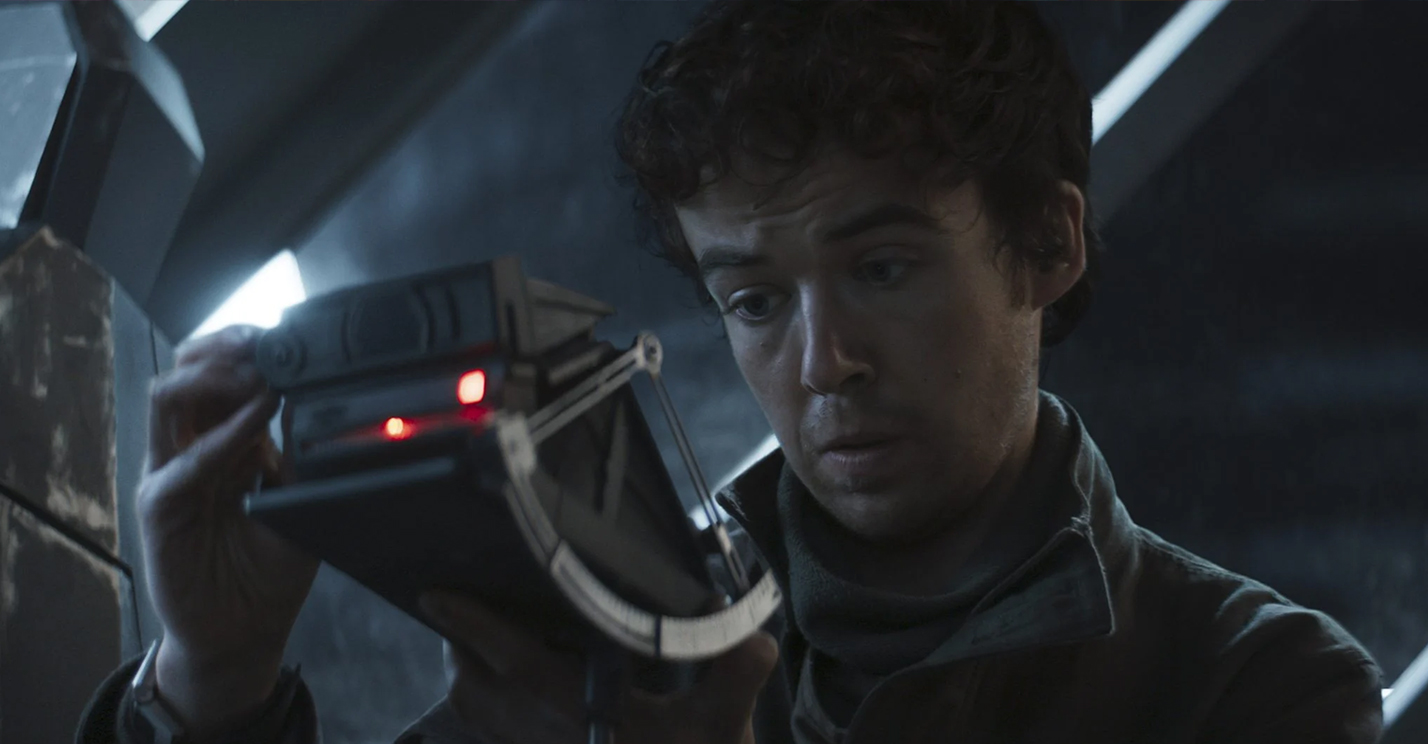
However, there’s a compelling humanism to all of this. In some ways, it feels like a secular counterpoint to the “Force ghosts” that haunt the rest of the Star Wars franchise, a suggestion that people live on in their words, their ideas, and their deeds, so long as they are remembered by the people left behind. It is very similar to the argument that “One Way Out” makes about the sacrifices of people like Luthen Rael, that their legacy lives on in the freedom of those who follow.
The irony is that one has to listen. “Rix Road” builds neatly off the paranoid surveillance motif that ran through “Daughter of Ferrix,” but with a slight twist. In “Rix Road,” the rebels weaponize this surveillance culture. Cinta (Varada Sethu) is spying on Corv as he spies on Ferrix. Mon Mothma stages an argument with her husband Perrin (Alastair Mackenzie) to cover her own activities, counting on her driver Kloris (Lee Ross) to eavesdrop and report it back to the ISB, misdirecting them.
It is easy to pretend not to hear, to turn a blind eye. “You know something I don’t?” Nurchi (Raymond Anum) advises Xanwan (Zubin Varla) early in the episode. “Do me a favor. Keep it that way.” Of course, Nurchi then sells out Andor to Corv. Blevin misses the raid on Kreegyr. The Empire itself proves surprisingly blind to what is happening. As the marching band approaches the garrison, Lieutenant Keysax (Nick Moss) protests, “Of course I hear it. I’m just not seeing it.”
“Here’s the thing, Cassian: The man who sees everything is more blessed than cursed,” Clem warns his adoptive son in a flashback. “People don’t look down to where they should. When they look down, they don’t look past the rust.” In her recorded speech to the assembled crowd, Maarva argues that Ferrix has been sleeping. “The Empire is a disease that thrives in darkness,” she contends. “It is never more alive than when we sleep.” The only way to fight it is to wake up.
“Rix Road” brings Cassian home. Once again, the forces of fascism come looking for him in a bloody confrontation on Rix Road. As Bix points out, he even climbs over the same junkyard wall. However, he has changed in that time. He has woken up. He’s seen the world as it is. “I’ll take care of Maarva; you take care of yourself,” Brasso instructs him. “It’s too late for that,” Cassian replies. To quote another science fiction property, the sleeper has awakened, and he can’t go back asleep.

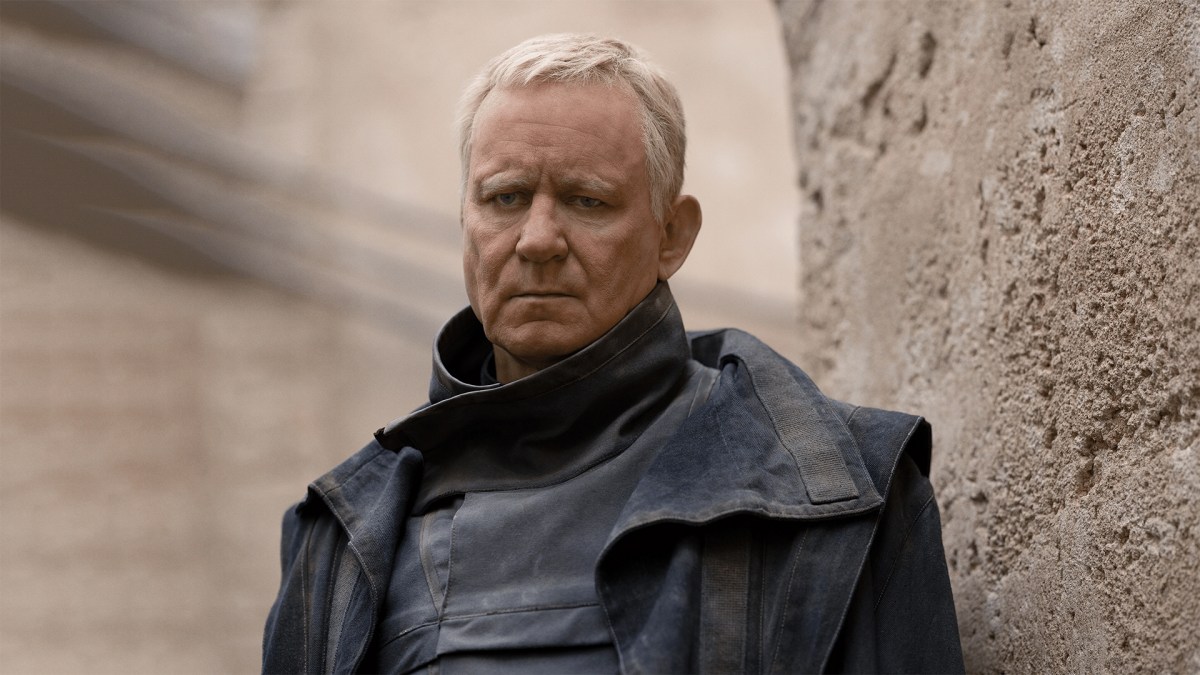




Published: Nov 23, 2022 10:00 am